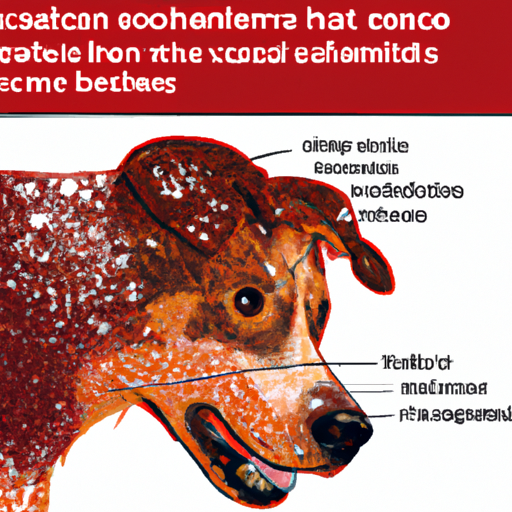As a caregiver, you might have noticed that your furry friend is experiencing some skin issues. One of the most common skin problems in dogs is seborrhea, a condition that causes oily, flaky skin. But what exactly causes seborrhea in dogs, and how can you help your pet?
H2: Understanding Seborrhea
Seborrhea is a skin condition that causes the sebaceous glands in a dog’s skin to produce too much sebum, resulting in oily, smelly skin. It can also lead to the formation of scaly flakes on the skin and in the fur. Seborrhea is often accompanied by itchiness, which can result in your dog scratching and causing further skin damage.
H2: The Root Causes of Seborrhea in Dogs
Seborrhea in dogs can be caused by a variety of factors. Some of these include:
-
Genetics: Some breeds are more prone to seborrhea than others. These include West Highland Terriers, American Cocker Spaniels, and Basset Hounds.
-
Allergies: Allergies to food, environmental factors, or specific substances can cause seborrhea.
-
Hormonal Imbalances: Conditions like hypothyroidism can lead to seborrhea.
-
Dietary Deficiencies: A lack of certain nutrients can cause seborrhea.
-
Parasitic Infections: Fleas, mites, and other parasites can cause seborrhea.
| Cause | Description |
|---|---|
| Genetics | Some breeds are genetically prone |
| Allergies | Reactions to food or environment |
| Hormonal Imbalances | Conditions like hypothyroidism |
| Dietary Deficiencies | Lack of certain nutrients |
| Parasitic Infections | Fleas, mites, etc. |
H2: Preventing Seborrhea in Dogs
Preventing seborrhea in dogs often involves addressing its underlying causes. Here are some steps you can take:
- Regular vet checkups: This can help detect hormonal imbalances or other underlying health issues.
- Balanced diet: Ensuring your dog has a balanced diet can prevent dietary deficiencies.
- Parasite control: Regular use of flea and tick preventatives can keep parasites at bay.
H2: Treating Seborrhea in Dogs
If your dog already has seborrhea, there are several treatment options available. These include medicated shampoos, dietary supplements, and in some cases, medications. Always consult with your vet before starting any new treatment.
H2: Frequently Asked Questions (FAQs)
Q: Can seborrhea in dogs be cured?
A: While there’s no cure for seborrhea, it can be effectively managed with proper care and treatment.
Q: Will changing my dog’s diet help with seborrhea?
A: It can, especially if your dog has a food allergy or a dietary deficiency that’s causing the seborrhea.
Q: Can seborrhea lead to other health problems?
A: Yes, if left untreated, seborrhea can lead to secondary skin infections, so it’s important to address the condition promptly.
Q: Can I use human dandruff shampoo on my dog?
A: No, human shampoos can be harmful to dogs. Always use products specifically designed for canines.
Remember, as a caregiver, your pet’s health is in your hands. Understanding seborrhea and its causes can help you provide the best care for your furry friend.



